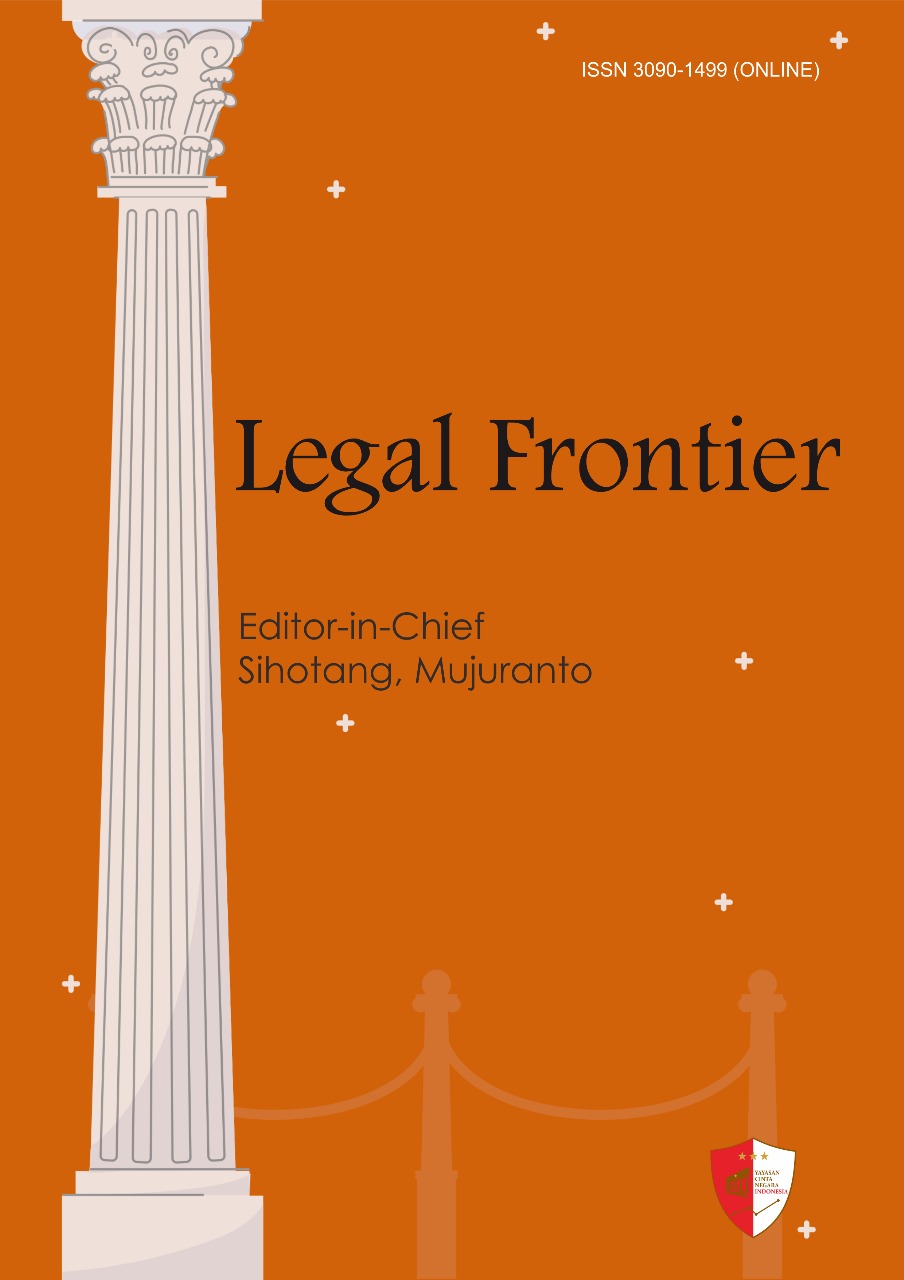A Methodical Review of the Relationship Between Legal Frameworks and Social Behavior
Keywords:
Influence Of Law, Law Enforcement, Legal Framework, Sociology Of Law, Societal BehaviorAbstract
Legal frameworks play an important role in shaping people's behaviour through regulation, incentives and value internalization mechanisms. This study aims to provide a systematic review of how law operates as a social instrument in influencing individual and collective action in various social contexts. Using an interdisciplinary approach that includes the perspectives of legal sociology, normative theory, and public policy studies, this study analyzes relevant academic literature in the last two decades. The review identifies three main mechanisms of law's influence on people's behavior: (1) law as a means of control through formal sanctions and regulations, (2) law as an agent of social change that instills new values and norms, and (3) law as part of the social contract that reflects societal consensus. In addition, this study also discusses factors that influence legal effectiveness, including institutional legitimacy, enforcement capacity, and local cultural and political dynamics. The results of this study show that the success of the legal framework in shaping behavior is highly dependent on the compatibility between legal norms and the social values of the community. Therefore, a deep understanding of the relationship between law and social behavior is crucial in the formulation of effective and sustainable legal policies
References
Alchian, A. A., & Demsetz, H. (1972). Production, Information Costs, and Economic Organization. American Economic Review, 62(5), 777–795.
Backer, L. C. (2015). The Role of Law in Social Change. Journal of Law and Society, 42(1), 34-56.
Barkan, S. E. (2010). Criminology: A Sociological Understanding. Pearson.
Black, D. (1976). The Behavior of Law. Academic Press.
Coleman, J. S. (1990). Foundations of Social Theory. Harvard University Press.
Cotterrell, R. (2006). Law, Culture and Society: Legal Ideas in the Mirror of Social Theory. Ashgate.
Durkheim, É. (1984). The Division of Labor in Society. Free Press.
Ellickson, R. C. (1991). Order Without Law: How Neighbors Settle Disputes. Harvard University Press.
Foucault, M. (1977). Discipline and Punish: The Birth of the Prison. Pantheon Books.
Fuller, L. L. (1969). The Morality of Law. Yale University Press.
Gunningham, N., & Rees, J. (1997). Industry Self-Regulation: An Institutional Perspective. Law & Policy, 19(4), 363-414.
Habermas, J. (1996). Between Facts and Norms: Contributions to a Discourse Theory of Law and Democracy. MIT Press.
Haines, F. (2010). Law and Social Change: New Perspectives on Law and Society. Routledge.
Hechter, M., & Horne, C. (2003). Readings in Comparative Political Sociology. Wiley-Blackwell.
Hulsman, L. (1986). Critical Criminology. SAGE Publications.
Kelsen, H. (1967). Pure Theory of Law. University of California Press.
Kotter, J. P. (1996). Leading Change. Harvard Business Review Press.
Luhmann, N. (2004). Law as a Social System. Oxford University Press.
Macey, J. R. (2000). The Law and Economics of Crime. Harvard Journal of Law & Public Policy.
Marmor, A. (2006). Law and Social Norms. Stanford Encyclopedia of Philosophy.
Max Weber, M. (1978). Economy and Society. University of California Press.
Milgram, S. (1963). Behavioral Study of Obedience. Journal of Abnormal and Social Psychology, 67(4), 371–378.
Mitchell, G. E. (2005). Social Control and Social Change. Sociological Perspectives, 48(2), 263-279.
Packer, H. L. (1968). The Limits of the Criminal Sanction. Stanford University Press.
Parson, T. (1951). The Social System. Free Press.
Posner, R. A. (1998). Economic Analysis of Law. Aspen Publishers.
Rawls, J. (1971). A Theory of Justice. Harvard University Press.
Rosenberg, M. (1994). The Culture of Justice: Law as Social Control. Journal of Social Issues, 50(4), 39-53.
Sarat, A., & Kearns, T. R. (Eds.). (1993). Law in Everyday Life. University of Michigan Press.
Selznick, P. (1992). The Moral Commonwealth: Social Theory and the Promise of Community. University of California Press.
Tyler, T. R. (1990). Why People Obey the Law. Yale University Press.
Uphoff, N. (1986). Improving International Development Management. Kumarian Press.
Von Hirsch, A., & Ashworth, A. (2005). Proportionate Sentencing: Exploring the Principles. Oxford University Press.
Walker, N. (2010). The Idea of Justice. Penguin.
Zucker, L. G. (1987). Institutional Theories of Organization. Annual Review of Sociology, 13, 443-464.
Downloads
Published
Issue
Section
License
Copyright (c) 2025 Maulina sintia, Hasti Kumala, Arnesto (Author)

This work is licensed under a Creative Commons Attribution-NonCommercial 4.0 International License.






